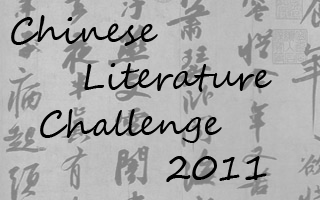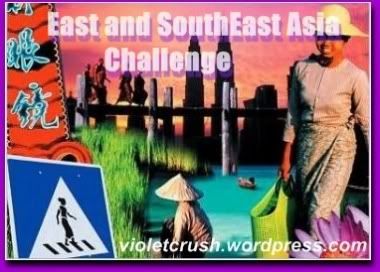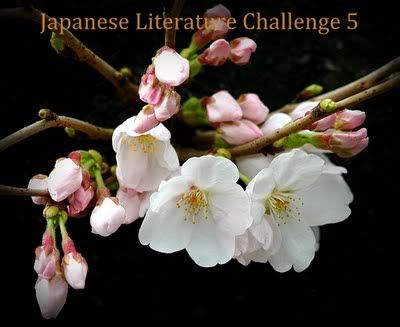She was born with dissipation in her veins. It was fated that she'd turn out this way, despite your attempts to rescue her. -Naomi, 199
Now do you see how frightening I can be? -Naomi, 231
I've been on an Asian literature kick lately, due in large part to the East and Southeast Asia Challenge. I checked out a copy of Please Look After Mom and after that, I'll probably branch out for a bit.
Naomi (or Chijin no Ai, A Fool's Love, in Japanese) couldn't be more different from The Makioka Sisters, which makes sense, since they were written at different points in Tanizaki's life and focus on dramatically different subject matter. While The Makioka Sisters was written in the 1940's and focuses on the daily life of an affluent Osakan family in decline, Naomi was written in 1924 and focuses a modern girl in Tokyo. Tanizaki was more progressive in the 1920's, to the point that Naomi, which was a newspaper serialization, was actually pulled from Osaka's Morning News due to controversy over the portrayal of Western style dancing.
The plot of Naomi is relatively straightforward. It seems influenced by The Tale of Genji (an older man attempts to groom a young woman into a perfect wife) and a precursor to Lolita (older man suffers for his obsession with younger woman). Joji, the narrator, meets Naomi when she's 15 and he's 28. She's a hostess at a cafe, the daughter of a family who runs a brothel. In her mother's own words, "We were going to make the child a geisha...but she wasn't interested, and so we were obliged to send her to the cafe. We couldn't just let her go on playing."
Joji is an engineer who lives frugally and enjoys a good reputation at work. In fact, he's known as a gentleman, though he dismisses this by saying "Still a country bumpkin at her, I was awkward with people and had no friends of the opposite sex, which is no doubt what made me a 'gentleman.'" Taking all of this into account, his interest in Naomi, due most to her Western-sounding name and her "Eurasian" features), shouldn't be that surprising.
Joji rejects the idea of a traditional marriage, both because of the complicated nature of Japanese marriage negotiations and because he rejects the trappings of traditional married life. In his words:
The best approach would be to bring a girl like Naomi into my home and patiently watch her grow. Later, if I liked what I saw, I could take her for my wife. This would be quite enough; I wasn't interested in marrying a rich man's daughter or a fine, educated sort of woman.
And so, with the consent of Naomi's family, he brings her to life with him, provides her with English and piano lessons, buys her clothes, and overall takes the steps needed to turn Naomi into the perfect modern wife. Of course, it comes as no surprise that things don't work out according to plan and the Joji suffers for it.
Joji should be an utterly despicable character and, despite the fact that the entire story is told from his point of view, in fact doesn't come off as a particularly sympathetic character. However, neither does Naomi. In spite of everything, Joji comes of as less predatory and more misguided. There's a sense of immaturity and social awkwardness and that, rather than a progressive view, seems to explain his rejection of a traditional marriage. Naomi quickly becomes spoiled and lazy in her new situation and Joji, despite seeing Naomi's negative traits very early, goes along with the everything despite realizing very quickly that Naomi spending more than he earns and that their "fairy-tale house" is quickly become a nightmare, with half-eaten food and dirty underwear everywhere.
The most interesting part of the story, to me, is Joji's lack of self-awareness. His problems with Naomi might have occurred because trying to change another person and turn her into your ideal never works out. However, his attempts to turn Naomi into the perfect sophisticated and respectable wife might have failed because he isn't the urbane gentleman he thinks he is. Naomi easily deceives him not because of some extraordinary power over his, as he wants to believe, but because Joji has already deceived himself.


